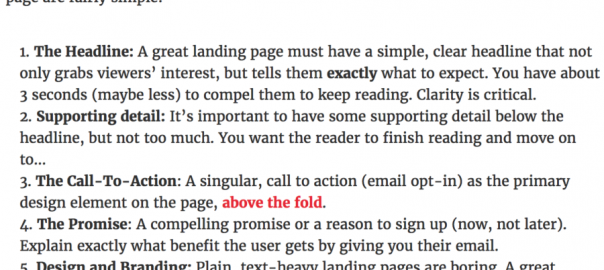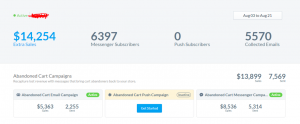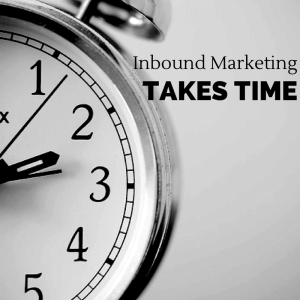— April 18, 2018
Whether you invented a solution to a problem you were having or simply sourcing funds for the next big startup, crowdfunding has become the go-to investment vehicle for many project creators. Brands, individuals, artists and other creatives are succeeding with their Kickstarter campaign–the successful ones gain new fans and customers via the platform:
Crowdfunding platforms allow people vote on a product with their dollars, allowing start-ups in industries ranging from music to software raise seed capital easily.
However, the sheer number of crowdfunding platforms available can lead to some confusion:
For example, Artistshare excels at funding artistic projects, Crowdcube at investment crowdfunding in England, GoFundMe at philanthropic projects, but we’ve found that for product design, especially in the technology space, there’s no better platform than Kickstarter.
Kickstarter has helped fund over 100,000 different projects, raising over $ 2 billion since it’s 2009 launch.
With over 37 million visitors per month, it seems like the perfect spot to launch products, but even many promising products have failed to take off here.
Crowdfunding success relies on getting key concepts right from the onset, as we’ve discussed here, here and here.
But what if you don’t want to use Kickstarter for only funding? With over 4 million pageviews per day, there must be a way to use it for marketing and branding too, right?
Many entrepreneurs admit that branding and marketing are usually an afterthought; they are too busy figuring out all that goes into successful production on a limited budget. They find out–usually too late–that marketing and promotion, especially in a competitive market, can be hard!
However, on Kickstarter, you can leverage certain elements to your advantage.
How does Kickstarter work?
Here are five ways Kickstarter can come do more than just raise funds for your campaign:
1. Generate a Buying List
On Kickstarter, you can only receive backer’s email address if your campaign is successfully funded.
To get around this, create a stand-alone site for your product, before your campaign launches. This extra platform allows you accept even more pre-orders, while ensuring that you have a solid post-campaign presence.
ConversionXL has some great tips that will help with your landing page and your project page in their post 19 Psychological Tactics for Successful Crowdfunding.
Some of the pre-launch landing platforms that are popular, automate a viral element and are easy to set up include:
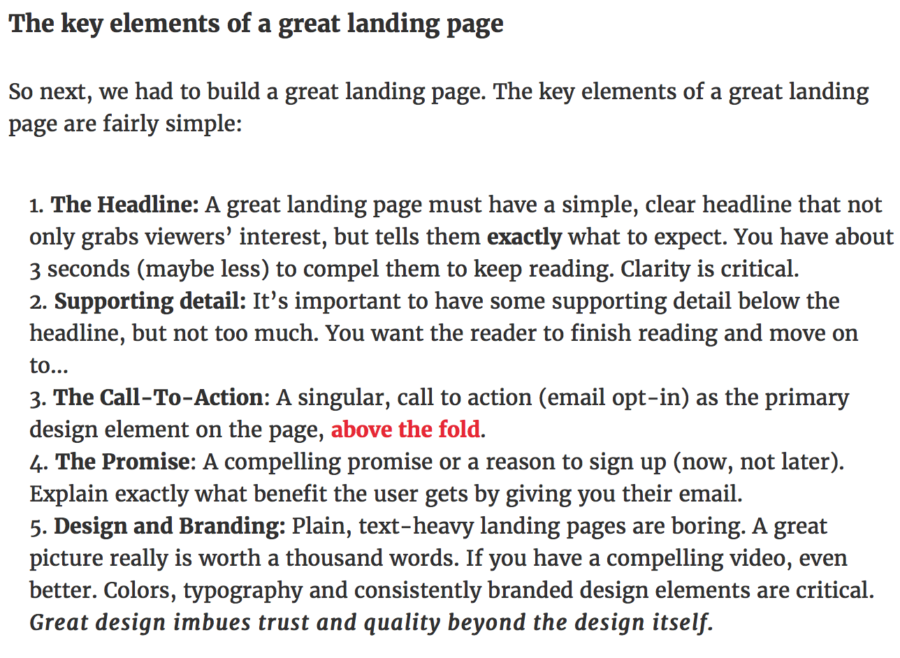
The above are crowdfunding landing page recommendations from Clay Herbert; you can get into the details of landing page design by reading his case study here.
During the campaign, funneling prospects to a landing page on your site and collect the email addresses of people interested in your product. After the campaign, you’ll have a list of highly targeted people who are likely to buy when you launch.
An added bonus is the extra link authority passed to your product site from your Kickstarter campaign page; this can help boost your site SEO.
2. Using a Kickstarter Campaign to Get Crowdsourced Validation
Regardless of how innovative you think your product is, if it’s a product that nobody wants, it simply won’t do well.
With Kickstarter’s built-in audience, you can crowdsource the ‘best’ iteration of your product.
By launching here, you can test everything from your brand colors to specific product features. Prospective backers will gladly give feedback on the specifics they’d like to see. Listen to their suggestions and you’ll be on your way to creating a tribe of loyal customers.
An active Kickstarter campaign also demonstrates proof-of-concept to potential investors–good to have when you’re planning to expand your business.
The Oculus Rift raised $ 2.5 million on Kickstarter in 2012, and 2015, Facebook bought the parent company for over $ 2 billion!
A Kickstarter campaign can help prove that a market actually exists, helping you receive second-stage funding, in the future.
3. Big Data = The ‘Perfect’ Campaign
With so much information available on the Internet, everything from articles, white papers to videos, it has become easier to plan successful campaigns.
Did you know that 24-to-35 year-olds are more likely to participate in crowdfunding or that more males back campaigns than women?
Crowdfunding sites, especially large ones like Kickstarter, have had a ton of demographic research done on them. With access to this big data, you drill down to find your ideal customer and craft a message that resonates with them, improving your chances of campaign success.
- Which social media platforms are they on?
- Which popular blogs do they read?
- Which influencers have the most clout?
These days, your most valuable customer is the one who becomes a brand ambassador and influences others to buy via their blogs, tweets, Facebook and online product reviews.
4. Connect with Your Story
Speaking of resonating with an audience, a study by Wharton School found that on average, projects without a video only have a 15% chance of success vs. 37% for a project with video. If you think about it, a video will help make a campaign that bit more personal.
By showing your face in a Kickstarter video, you’ll connect with more people than if you used an animated video. It doesn’t have to be an elaborate, SFX-filled production; it can be as simple as introducing yourself, explaining the campaign and your product, allowing viewers to understand why your project deserves to be backed.
Sounds simple, but as humans, we love hearing stories we can relate to.
Do you remember the name of the guy who used Kickstarter to ‘fund’ making a bowl of potato salad? Probably not, but everyone remembers the story and the emotion it evoked in them.
Use your Kickstarter video to connect with the audience by telling your story in a way that conveys your story and passion for the project.
5. Kickstarter’s Multiplied Outreach
It’s true that a Kickstarter campaign can help you spread the word about your project, but did you know that only 25% of the traffic to any Kickstarter campaign comes from users browsing the Kickstarter site?
A whopping 75% comes from outside Kickstarter!
The platform provides a level of validation that few marketing channels can match. The instant a campaign launches, product creators can drive more traffic by sending out social media updates, issuing press releases, and contacting influential bloggers.
But even these channels can pale in comparison to getting noticed by the Kickstarter site itself.
The platform pays attention to the traction that projects get on social media and any mentions on Google news.
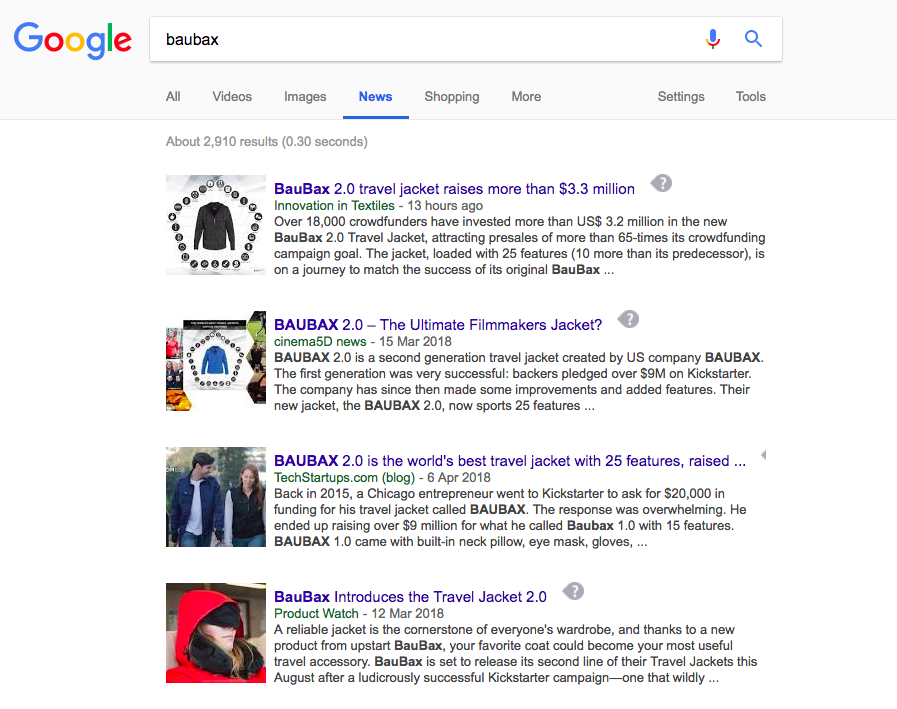
When your campaign gets noticed, it can be handpicked as a Kickstarter staff pick. This means it gets featured in Kickstarter’s global email newsletter, which picks out three projects that pique the interest of their staff.
With over 3 million users, getting out there and subsequently in front of Kickstarter staff, can be the difference of an OK campaign and a super-successful one.
When it’s all said and done, launching on Kickstarter and the attendant exposure can be the start of a very successful business. To get an idea of just how successful some of the projects have been you can see the up-to-date list of the most successful Kickstarter campaigns here.
But remember that Kickstarter is also a very public place, and without thorough planning, the failure of your campaign will also get noticed by many.
Many tools and services exist to help campaigner’s with reaching a buying audience and getting the sales momentum moving so your campaign is a success, examples include:
- Publicize, for media outreach
- Tomoson, for blogger outreach
- Buzzsumo, find influencers on social platforms
- NinjaOutreach, find bloggers and other influencers with automated contact outreach
- Krowdster, for press contacts
- Crowdco, for crowdfunding marketing
- Boost Your Campaign, for press and social marketing
- Trident Design, for service product launch specialist
- The Crowdfund Mafia, campaign support, design and advertising
- The Gadget Flow, reach gadget fanatics on this site and via the platforms newsletter
- Backerclub, connect with serial backers and boost your earnings
- Kickbooster, use affiliates to spread your message when your campaign is live
- Megafounder, continue making sales once your crowdfunding has ended
- Hypemarket, utilize Instagram influences to spread your message
- Hyperstarter, optimize your project page with this free tool
- Justreachout, forget PR firms, find and pitch relevant journalists daily all on your own
- Mailshake, automate your outreach to Bloggers and Journalist
- Buzzstream, research influencers, manage your relationships, and conduct outreach that’s personalized and efficient
- 100 Crowdfunding Influencers, connect with these individuals and get a campaign boost
It’s easy to get overwhelmed with the fine-points of launching your Kickstarter campaign but with some of the tools and services above, you can leverage technology to reach a wider audience and achieve your projects goals.
Once you’ve hit your target, or even before, it’s never too soon to prepare for success, the final step on your path to success being fulfillment, delivering your creations to your backers.
Crowdfunding Fulfillment
With the most common crowdfunding failing being delays and non-delivery, you must also check your logistics for fulfillment capability.
Many backers tend to overlook the fact that they may have to ship rewards to other parts of the world, and we’ll be the first to tell you; international shipping is expensive!
Business & Finance Articles on Business 2 Community
(104)
Report Post